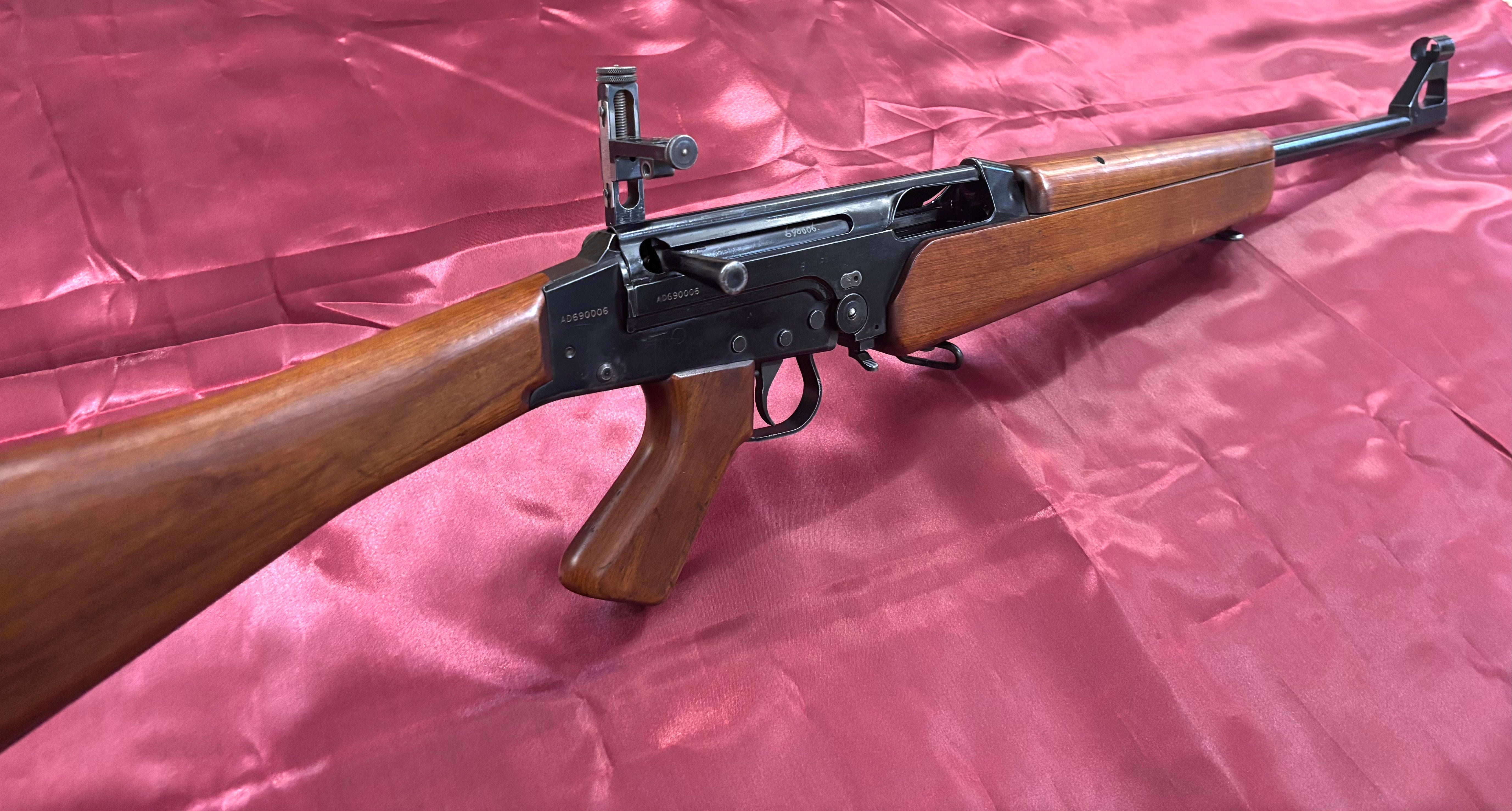
Lithgow L.A.F L1A1 Target Rifle
This week for Firearm Friday we are bringing you the Lithgow S.A.F Target L1A1 Rifle

It was produced from the chassis of the L1A1 SLR (Self Loading Rifle) which was adopted from the FN FAL battle rifle design, we have previously showcased the FN FAL: https://owenguns.com/blogs/museum-weapons/fabrique-nationale-de-herstal

The L1A1 and other inch-pattern derivatives trace their lineage back to the Allied Rifle Commission of the 1950s, whose intention was to introduce a single rifle and cartridge that would serve as standard issue for all NATO countries. They originally adopted the Rifle No. 9 Mk 1 chambered for a 7mm intermediate cartridge. To meet this plan and strengthen ties with the United States, the United Kingdom soon dropped the No.9 rifle in favor of the Belgian FAL chambered for the newly proposed American 7.62×51mm cartridge. Based on Canada's experiments with the FAL that led to the C1A1, the United Kingdom and Australia adopted the L1A1 (or Self-Loading Rifle) as their new service rifle in 1954.

NATO standardized on the 7.62mm NATO cartridge in 1954, but did not adopt a standard rifle. Most adopted a native design chambered for 7.62mm NATO, with Germany eventually adopting the G3 and the United States adopting the M14. Even the C1A1 and L1A1 used inch measurements and were not interchangeable with the FAL's metric parts. France's participation was to adopt a natively-designed service rifle that used their national 7.5mm MAS rifle cartridge.

The Australian L1A1 is also known as the "self-loading rifle" (SLR), and in fully automatic form, the "automatic rifle". The Australian L1A1 features are almost identical to the British L1A1 version of FAL. The Australian L1A1 differs from its British counterpart in the design of the upper receiver lightening cuts. The lightning cuts of the Australian L1A1 most closely resemble the later Canadian C1 pattern, rather than the simplified and markedly unique British L1A1 cuts.

The Australian L1A1 FAL rifle was in service with Australian forces until it was superseded by the F88 Austeyr, a licence-built version of the Steyr AUG, in 1988. Some remained in service with Reserve and training units until late 1990. Some Australian Army units deployed overseas on UN peacekeeping operations in Namibia, the Western Sahara, and Cambodia still used the L1A1 SLR and the M16A1 rifle throughout the early 1990s. The British and Australian L1A1s, and Canadian C1A1 SLRs were semi-automatic only, unless battlefield conditions mandated that modifications be made.

By the mid 1960's the National Rifle Association was looking for a new competition rifle that took the 7.62mm NATO round. The Lithgow Factory was informed of their requirements and set about producing a suitable weapon. After a number of prototypes a single shot 7.62mm target rifle based on the then current L1A1 Service rifle was produced. It was made exclusively at Lithgow SAF and had an adapter plate for a Central aperture sight fitted as standard.

Originally designated the 'SAF Target Rifle 7.62mm', the word 'Lithgow' was added to the name in 1969. The design was not successful with most competition shooters preferring a conventional bolt action rifle. As a result only around 130 of these rifles were manufactured. The Sportco Omark Model 44 was selected over the L.A.F and this is where production was halted.

In our museum we have the whole timeline of this rifle’s production, the FN FAL, L1A1 SLR and L.A.F are all on display 6 days a week and the competitors rifle the Sportco Omark Model 44 we have on display and if you come in on the right day we may even have one in the store for sale.
















